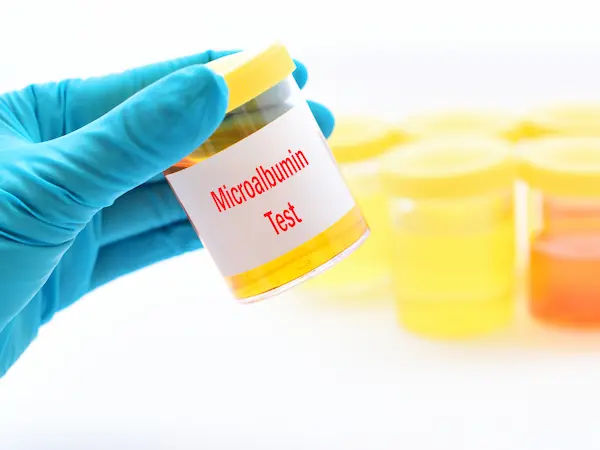Urine Odour Causes & Treatment
Unusual urine odour can be caused by diet, dehydration, infections, or underlying health conditions. Learn about the causes, treatments, and when to seek medical advice to maintain urinary health.

Written by Dr.Sonia Bhatt
Last updated on 13th Jan, 2026

Introduction
Urine odour is a natural and sometimes subtle indicator of your health. Typically, urine has a mild, somewhat neutral smell, but changes in its odour can sometimes be a sign of an underlying issue. While some causes are benign and can be attributed to factors like diet or hydration levels, others may point to more serious medical conditions that require attention.
In this article, we will explore the common causes of strong or foul-smelling urine, possible treatments, and when to seek medical advice. Understanding the reasons behind changes in urine odour can help you maintain better health and catch any potential problems early.
What is Normal Urine Odour?
Urine is produced by the kidneys, which filter waste products from the bloodstream. A standard, well-hydrated urine should have a pale yellow to amber colour and a mild, non-offensive smell.
The odour of urine can change throughout the day based on various factors like hydration levels, the foods you consume, or the medications you take. Typically, the smell is strongest in the morning, when your body is more dehydrated after a night of sleep. As you hydrate, the odour becomes less pungent, and urine colour becomes lighter.
However, if your urine consistently has a strong or unusual odour, it could signal an underlying issue that warrants further investigation.
Consult Top Experts for Your Symptoms
Common Causes of Strong or Foul Urine Odour
Several factors, both temporary and chronic, can alter the odour of your urine. Some of these causes are harmless and easily reversible, while others may indicate a medical condition that requires attention.
1. Dietary Factors
One of the most common and benign causes of urine odour is diet. Certain foods contain compounds that can be excreted in the urine, leading to a distinct smell. For instance, asparagus is notorious for causing a strong, sulphur-like odour due to asparagusic acid. Other foods that can influence urine odour include garlic, onions, and Brussels sprouts. These foods contain sulphur compounds that are broken down during digestion and excreted in the urine.
2. Dehydration
Dehydration is another significant factor that can cause urine to have a strong odour. When the body is not adequately hydrated, the urine becomes more concentrated with waste products, which can result in a stronger smell. Dehydration can be caused by various factors, including not drinking enough water, excessive sweating, or certain medical conditions.
3. Medical Conditions
Several medical conditions can lead to changes in urine odour. Here are some of the most common ones:
Urinary Tract Infections (UTIs): UTIs are caused by bacteria entering the urinary tract, leading to infection. This can result in foul or strong-smelling urine, often accompanied by other symptoms such as a burning sensation during urination, frequent urination, and cloudy urine.
Sexually Transmitted Infections (STIs): Some STIs, such as chlamydia and trichomoniasis, can cause changes in urine odour. These infections often require medical treatment and can present with additional symptoms like genital discharge, itching, and pain.
Diabetes: Uncontrolled diabetes can lead to high levels of sugar in the urine, which can cause it to have a sweet or fruity smell. This condition, known as diabetic ketoacidosis, requires immediate medical attention.
Liver Disease: Liver disease can result in the accumulation of toxins in the body, which can be excreted in the urine, causing a distinct odour.
Chronic Renal Failure: When the kidneys are not functioning properly, waste products can build up in the body, leading to a strong urine odour.
4. Medications and Supplements
Certain medications and supplements can also alter the smell of urine. For example, antibiotics, especially those used to treat UTIs, can change urine odour. Similarly, vitamin B6 supplements are known to cause a strong odour in urine. It's essential to discuss any medications or supplements you're taking with your healthcare provider if you notice changes in urine odour.
5. Other Factors
Other factors that can influence urine odour include age, gender, and lifestyle. Hormonal changes, especially in women, can affect urine odour. Additionally, smoking and consuming large amounts of alcohol can lead to changes in urine smell.
When to Seek Medical Help?
While occasional changes in urine odour are typically harmless, persistent or unusually foul-smelling urine can signal a health problem that requires medical attention. You should consult a healthcare provider if:
You experience pain, burning, or difficulty urinating
Your urine is consistently strong-smelling, dark, or cloudy
You notice blood in your urine or a change in urine colour
You experience symptoms of dehydration despite adequate water intake
Your doctor can perform urine tests, blood tests, and other diagnostic procedures to determine the underlying cause of the odour and recommend an appropriate course of treatment.
Treatment & Prevention of Urine Odour
Treating urine odour depends on what’s causing it. In many cases, small changes in your lifestyle can help, but sometimes you may need medical treatment. Here are some ways to treat and prevent urine odour:
Drink Plenty of Water
One of the easiest ways to reduce strong urine odour is to stay hydrated. Drinking enough water helps to dilute your urine, which reduces the concentration of waste that causes strong smells. Try to drink at least 8 cups of water a day. If you’re very active or live in a hot climate, you may need even more water to stay properly hydrated.
Make Changes to Your Diet
Certain foods can cause your urine to smell stronger. If you notice a particular food that seems to affect the smell, try cutting back on it or changing your diet. Some tips include:
Cut back on foods high in sulphur, like asparagus, broccoli, and onions. These can make your urine smell stronger.
Limit coffee if it makes your urine smell worse.
Eat more fibre (found in fruits, vegetables, and whole grains) to support healthy digestion and help reduce odour.
Treat Health Problems
Sometimes, urine odour is a sign of an underlying health problem, like a urinary tract infection (UTI), diabetes, or kidney disease. If that's the case, treating the condition is key:
For UTIs, your doctor will likely prescribe antibiotics to clear the infection.
If you have diabetes, managing your blood sugar through medication, diet, and exercise can help control urine odour.
For kidney problems, treatments might include medications or dialysis to help your kidneys work properly.
Your doctor can help determine the best treatment based on your specific condition.
Practice Good Hygiene
Keeping clean is important, especially if you're experiencing frequent urination. Be sure to:
Shower regularly and clean the genital area thoroughly to prevent bacteria from building up.
Wipe from front to back after using the bathroom to help prevent bacteria from entering the urinary tract.
Keep the area dry to avoid creating an environment where bacteria can grow.
Conclusion
Changes in urine odour can happen for many reasons, from harmless things like what you eat to more serious health problems. While temporary changes are usually nothing to worry about, urine that smells bad or has a strong odour for a long time should be checked by a doctor.
By understanding what causes urine odour and following the right steps to treat or prevent it, you can keep your urinary health in good shape and avoid worrying about strong smells. Drink plenty of water, eat a balanced diet, and if you notice your urine smelling unusual for a while, don’t hesitate to talk to your doctor.
Consult Top Urologists
Consult Top Experts for Your Symptoms
Dr. J Chaithanya
Urologist
6 Years • MBBS MS GENERAL SURGERY MCH UROLOGY
Bengaluru
Apollo Medical Center, Marathahalli, Bengaluru

Dr. Gaurab Dasgupta
Urologist
14 Years • MBBS, MS General Surgery, MCH Urology, FMAS
Kolkata
MCR SUPER SPECIALITY POLY CLINIC & PATHOLOGY, Kolkata

Dr. Rohit Bhattar
Uro Oncologist
14 Years • MBBS, MS, MCh (Urology), Fellowship in Uro-oncology and Robotic Urology (United Kingdom)
Ahmedabad
Apollo Hospitals Gandhinagar, Ahmedabad
(100+ Patients)

Dr. Dhruv B. Patel
Urologist
12 Years • MBBS, MS, DrNB (Urology - IKDRC, Ahmedabad)
Ahmedabad
Apollo Hospitals Gandhinagar, Ahmedabad
(25+ Patients)

Dr Anupam Sharma
Urologist
18 Years • MBBS, MS(Gen Surgery), DNB (Urology)
Delhi
Apollo Hospitals Indraprastha, Delhi
(25+ Patients)
Consult Top Urologists
Dr. J Chaithanya
Urologist
6 Years • MBBS MS GENERAL SURGERY MCH UROLOGY
Bengaluru
Apollo Medical Center, Marathahalli, Bengaluru

Dr. Gaurab Dasgupta
Urologist
14 Years • MBBS, MS General Surgery, MCH Urology, FMAS
Kolkata
MCR SUPER SPECIALITY POLY CLINIC & PATHOLOGY, Kolkata

Dr. Rohit Bhattar
Uro Oncologist
14 Years • MBBS, MS, MCh (Urology), Fellowship in Uro-oncology and Robotic Urology (United Kingdom)
Ahmedabad
Apollo Hospitals Gandhinagar, Ahmedabad
(100+ Patients)

Dr. Dhruv B. Patel
Urologist
12 Years • MBBS, MS, DrNB (Urology - IKDRC, Ahmedabad)
Ahmedabad
Apollo Hospitals Gandhinagar, Ahmedabad
(25+ Patients)

Dr Anupam Sharma
Urologist
18 Years • MBBS, MS(Gen Surgery), DNB (Urology)
Delhi
Apollo Hospitals Indraprastha, Delhi
(25+ Patients)




